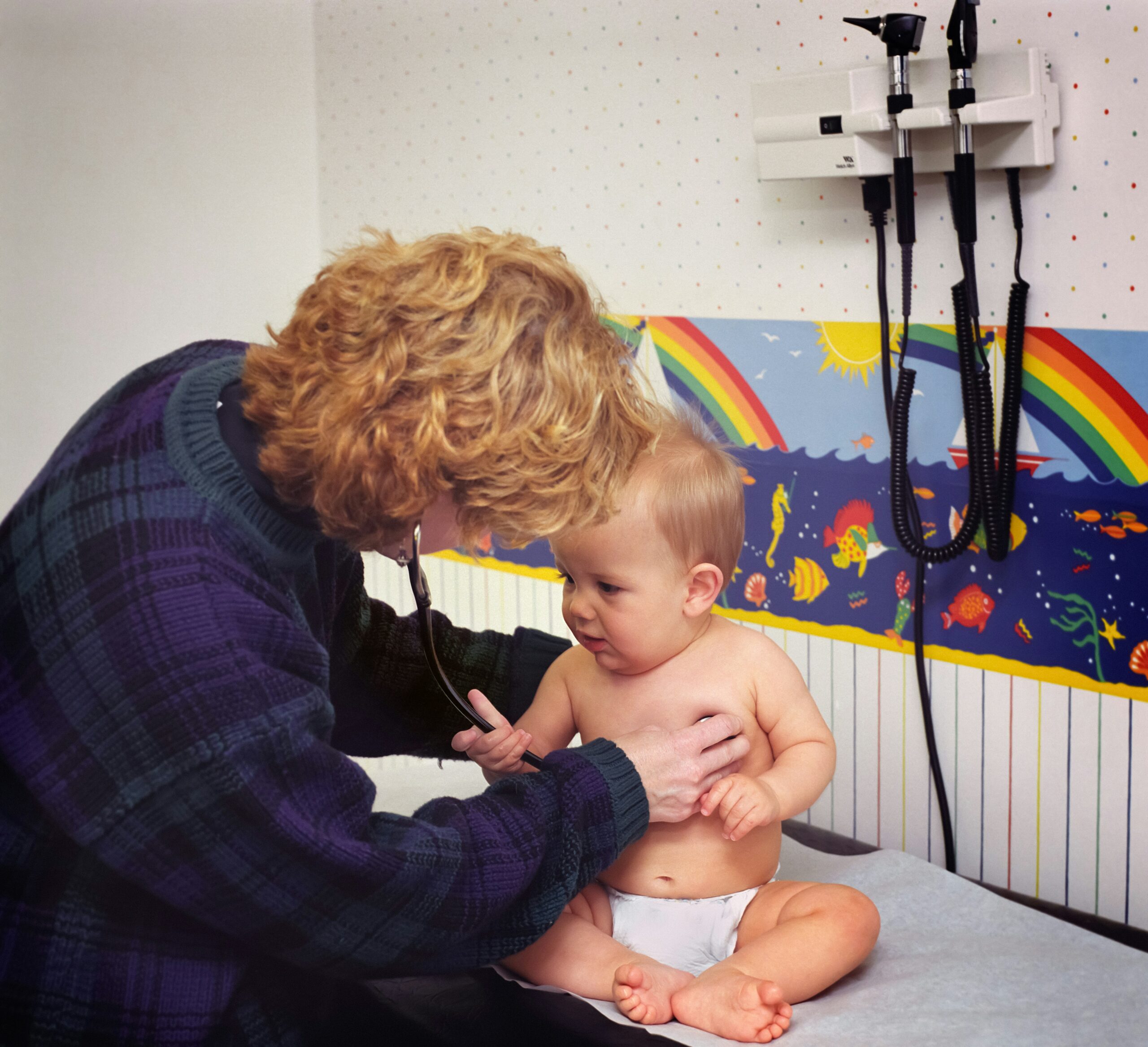Parenthood, a tapestry woven with curiosity, questions, and the desire for well-being, often presents uncharted territory—especially when it comes to your child’s health. The word pediatrician may spark images of quick checkups and stethoscopes, but the reality runs deeper. Whether you are decoding a newborn’s cry, weighing the nuances between a harmless sniffle and something requiring intervention, or pondering how best to foster healthy habits, a pediatrician stands as both a compass and a source of reassurance. What precisely does their role encompass? How do they tailor their expertise—medical, developmental, emotional—to the unique pulse of your family’s needs? Let’s unravel what makes the pediatrician such an essential figure on your family’s journey, from birth’s very first breath through to the cusp of young adulthood.
Understanding the Pediatrician’s Scope: Beyond Basic Care
The pediatrician is far more than a doctor for children. This specialized physician possesses a thorough understanding of childhood growth patterns, immunization schedules, and developmental milestones. But have you ever wondered how they manage to spot a subtle difference in a toddler’s behavior or recognize when a teenager’s headache requires closer attention? Their training—rooted in clinical assessment, advanced developmental biology, and pediatric physiology—enables them to detect patterns invisible to the untrained eye.
Consider the complex interplay between childhood illness and development. Unlike adults, children’s symptoms often manifest in unique forms. A cough, a rash, an unsettled sleep—each can hint at a spectrum of possibilities. The pediatrician, alert to these variations, blends preventive care and disease management, keenly watching for signs that may elude even the most attentive parents.
Why is this specialization so valuable? Because the medical management of children demands nuance: medication dosages adjust for rapid growth, diagnostic tools must suit smaller bodies, and emotional support requires age-tailored approaches. With structured checkups, extensive knowledge of vaccination schedules, and the skill to interpret both physical and emotional indicators, pediatricians build a foundation for lifelong well-being.
Pediatrician versus Family Doctor: Expertise Tailored to Childhood
Who should you turn to when a fever spikes or milestones seem delayed: a pediatrician or a family doctor? While primary care is a shared responsibility, the pediatrician’s training centers exclusively on the world of young patients. This focus means more than knowing the names of childhood diseases. It’s about anticipating subtle growth variations, understanding the evolving needs of adolescence, and mastering strategies from nutritional guidance to complex immunizations.
A family doctor shines as a generalist—adept at managing a broad spectrum of ages and conditions. But for persistent fevers, unexplained weight changes, or developmental questions, the deep-dive expertise of the pediatrician becomes indispensable. And their work is not isolated. Collaboration between pediatricians and general practitioners ensures that care remains accessible and comprehensive.
What does this look like in practice? Imagine an infant who struggles to gain weight or a preschooler with persistent ear infections. The pediatrician quickly employs specific screening tools, leveraging both clinical observation and growth chart analysis to identify underlying issues—offering precise treatments or facilitating referrals to subspecialties when necessary.
The Pediatrician’s Medical and Human Toolbox: Listening, Explaining, Reassuring
A pediatrician’s touch combines advanced scientific knowledge with uniquely human skills: active listening, empathetic support, and clear communication. This means adapting explanations to a four-year-old’s world of play or an anxious parent’s need for detail. Why does your child refuse vegetables? Is it just a phase, or an early nutritional imbalance? Pediatricians synthesize evidence-based medicine with parental experience, guiding each question with patience and respect.
Emotional well-being cannot be separated from physical health. Pediatricians pay keen attention to behavioral shifts and family context. A child’s mood, social interactions, and school challenges might seem unrelated at first glance—but each provides valuable clues. Whether addressing sleep routines, separation anxiety, or navigating the first day of school, the pediatrician stands as both a trusted advisor and an advocate.
Proactive Preventive Care: Shaping Lifelong Health
The crux of pediatric care pivots on prevention—a philosophy that prioritizes anticipation over reaction. Regular follow-ups begin at birth and provide a structured rhythm to childhood: tracking growth and development, adjusting vaccinations, and conducting early screenings for visual, auditory, or motor difficulties.
These checkups are not simple box-ticking exercises. They’re opportunities to ask “What if?” and “Is this normal?” in a safe space. Whether the subject is infant feeding, hygiene strategies, or injury prevention, the pediatrician provides up-to-date guidance tailored to your circumstances. A recurring earache can signal not just infection but underlying allergies or environmental factors. Digestive upsets? Beyond diet, the pediatrician considers emotional context, stress, and underlying sensitivities.
And what about modern worries, like childhood obesity or sleep disturbances in a digital age? Pediatricians interweave clinical knowledge with practical advice, supporting families as they adapt routines to support resilience and healthy growth.
Training and Subspecialization: What Sets Pediatricians Apart
The path to becoming a pediatrician is anything but ordinary. Years of focused study (an undergraduate degree, followed by medical school and a pediatric-specific residency) are only the beginning. This foundational period not only builds mastery over infantile physiology and emergency management but also sharpens the skills required to comfort, explain, and empower.
Some pediatricians take this further, developing advanced expertise in intricate areas—neonatology (caring for newborns and premature infants), pediatric cardiology (addressing congenital heart concerns), or child psychiatry (support for emotional and behavioral difficulties), to name just a few. This breadth of subdisciplines ensures that your child, whether facing an acute illness or a rare condition, has access to cutting-edge care and evidence-based protocols.
What if you’re grappling with persistent asthma or complex allergies? The pediatrician becomes a conductor, orchestrating coordinated care between allergy specialists, nutritionists, and therapists—ensuring a holistic and seamless experience for your family.
Where Pediatricians Practice: Clinics, Hospitals, and Beyond
The reach of the pediatrician extends beyond the exam room. Routine follow-ups might unfold in the calm of a private clinic, tailored to the familiarity and pace your family finds most comfortable. Acute situations—like a newborn with jaundice or a child experiencing seizures—demand the expertise and resources of a hospital setting, where rapid intervention teams can make all the difference.
Public health centers and maternal-child care clinics provide increased accessibility, particularly for standardized checkups and immunizations. And the landscape is evolving: pediatric telemedicine, once considered futuristic, is now a practical solution for managing mild symptoms, ensuring continuity of care for chronic conditions, or seeking advice when visiting in person isn’t possible.
Each setting, unique in its strengths, shares one constant: the pediatrician’s commitment to safe, scientifically sound care, adapted to your child’s individual context.
The Pediatrician’s Key Roles: Monitoring, Supporting, and Intervening
Ongoing Monitoring and Screening
From tracking developmental milestones and head circumference to identifying delays in speech or motor skills, the pediatrician’s toolkit is both broad and finely tuned. Scheduled visits typically cluster in the first months of life, then space out as children grow—yet flexibility remains, with additional assessments when concerns arise. Early detection is vital: even small deviations can signal the need for further evaluation or targeted intervention.
Daily Parental Guidance: Nutrition, Sleep, Hygiene
Parenthood comes with a cascade of questions. Why will my six-month-old eat everything but carrots? What constitutes a “normal” night’s sleep at age three? The pediatrician answers these questions with a blend of research-based advice and practical wisdom—always considering family routines, cultural context, and the child’s temperament.
Unintentional injuries and household accidents represent a significant pediatric risk. Pediatricians devote time and detail to prevention: explaining how to secure furniture, create safe play environments, and respond swiftly when incidents happen.
Acute Illnesses and Chronic Conditions: Medical Leadership
When infections, allergic reactions, or respiratory symptoms strike, the pediatrician acts without hesitation—evaluating signs, adjusting treatments, and monitoring progress. But what about chronic situations? For children managing ongoing challenges (like diabetes, asthma, or eczema), the pediatrician coordinates a multidisciplinary team, maintaining thorough follow-ups and facilitating access to specialized resources.
Emotional and Behavioral Health: Attentive to the Whole Child
Physical well-being cannot be divorced from emotional health. Pediatricians monitor for anxiety, behavioral changes, and family stressors. Sometimes, the best support flows from empathetic listening, practical reassurance, or direct referrals to mental health professionals. The pediatrician remains engaged—tracking developmental changes, checking in after therapy, and helping families weather emotionally demanding periods.
When to Consult a Pediatrician: Signals and Support
Recognizing when to seek pediatric advice is a common parental concern. Persistent fever, recurrent digestive troubles, growth stagnation, or unexpected accidents each merit attention. Delays in walking, speech, or social interaction? Parents are encouraged to trust their instincts—consulting the pediatrician when questions arise, regardless of perceived severity.
For routine matters and minor ailments, family doctors are a reliable first point of contact. But when symptoms unfamiliar or persistent emerge, pediatricians deliver invaluable insight. Collaboration between professionals ensures that every child remains at the center of care, with their health record guiding coordinated efforts.
Selecting a pediatrician is a deeply personal choice. Proximity is practical, yes. Yet what sets the experience apart is accessibility, patience in listening, and an atmosphere of trust—for both parents and children alike. Teleconsultation options can be a lifeline for busy schedules or urgent doubts.
Working Within Support Networks: The Power of Team-Based Care
Healthcare for children thrives on collaboration. The pediatrician interacts daily with a spectrum of professionals—speech therapists, occupational therapists, midwives, pediatric nurses, and even surgeons. Information shared within this integrated network streamlines follow-up, supports thorough interventions, and strengthens the safety net for every child.
Pediatric Subspecialties and Modern Challenges
Child health constantly evolves. Pediatricians may pursue advanced training in nutrition, child psychiatry, rheumatology, endocrinology, hematology, or nephrology, each shaping a tailored approach to specific and sometimes rare conditions. Teamwork becomes essential when journeys grow complex.
Pediatric mental health, a growing field, addresses anxiety, mood changes, and developmental disorders with sensitivity and skill. Pediatricians screen, support, and connect families to specialized services when needed, remaining a reliable reference point throughout transitions.
With digital health and teleconsultations reshaping interactions, pediatricians blend modern modalities with tried-and-tested strategies. Parents expressing interest in complementary medicine—from osteopathy to homeopathy—find balanced, evidence-informed advice, ensuring safety without judgment.
Current challenges include evolving workforce dynamics, rises in chronic illnesses, and shifting expectations of access and prevention. Pediatricians, ever adaptive, invest in research, drive innovation, and advocate for child health at both community and national levels.
Key Takeaways
- Pediatricians support children from birth to early adulthood through individualized, empathetic, and medically rigorous monitoring.
- Their expertise blends diagnosis, treatment, and proactive guidance for a vast range of concerns—from growth patterns to emotional well-being.
- Extensive training, continuous learning, and subspecialization equip pediatricians to address both routine and highly complex situations.
- Children benefit from pediatric care delivered in private clinics, hospitals, public centers, or via teleconsultation—ensuring access that fits every family.
- Pediatricians coordinate integrated care with other health professionals, ensuring information flows smoothly and no aspect of a child’s health is overlooked.
- Modern challenges—rising chronic conditions, resource constraints, and evolving parental expectations—are met with innovative approaches and research-informed practice.
- For personalized advice, screening questionnaires, and ongoing support for your child’s well-being, explore the Heloa app—your partner in navigating childhood health with confidence and care.
Questions Parents Ask
What is the difference between a pediatrician and a neonatologist?
A pediatrician cares for children of all ages, from birth through adolescence, supporting both preventive health and the management of common illnesses. A neonatologist, on the other hand, is a pediatrician with additional specialized training to look after newborns—especially those who are premature or facing complex medical challenges right after birth. If your baby requires intensive care following delivery, a neonatologist will be by your side, working with your pediatrician for ongoing support. Each professional brings a unique set of skills, offering reassurance at every stage of your child’s early life.
Can a pediatrician help with behavioral or emotional concerns?
Absolutely. Pediatricians are here not only for physical health but also for emotional and behavioral well-being. It’s perfectly normal to wonder about challenges like tantrums, sleep difficulties, anxiety, or changes in mood. Pediatricians listen with empathy, offer guidance personalized to your child’s situation, and, when necessary, connect families to trusted specialists such as child psychologists or therapists. Don’t hesitate to bring up emotional or behavioral topics—these are just as important as physical checkups.
How do I choose the right pediatrician for my family?
Finding a pediatrician who makes you feel heard and understood is essential. You might want to consider factors like experience, communication style, clinic location, and availability for urgent questions or teleconsultations. Listen to your instincts during the first meeting: it’s important to feel comfortable asking anything, without fear of judgment. Trust and a genuine sense of partnership can make a real difference throughout your child’s health journey.

Further reading:








